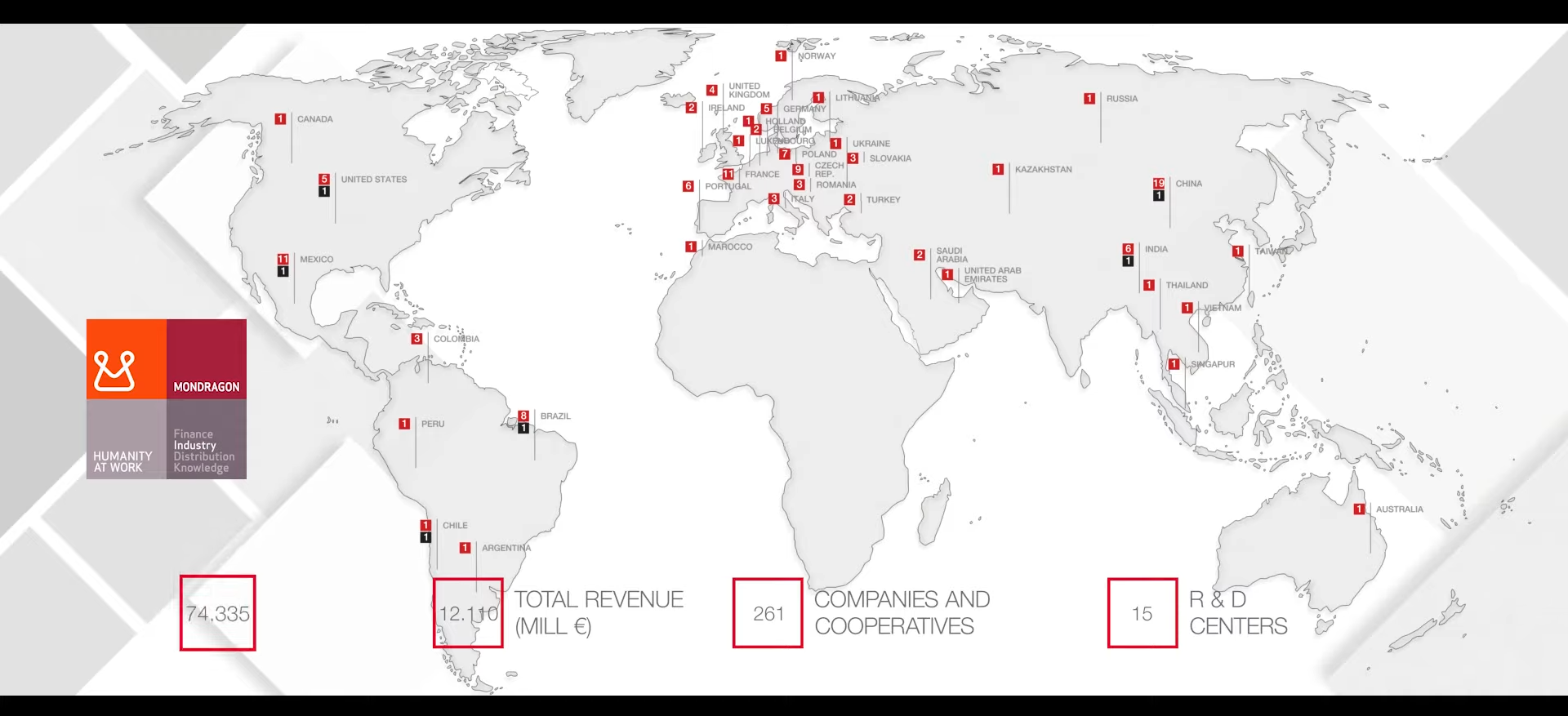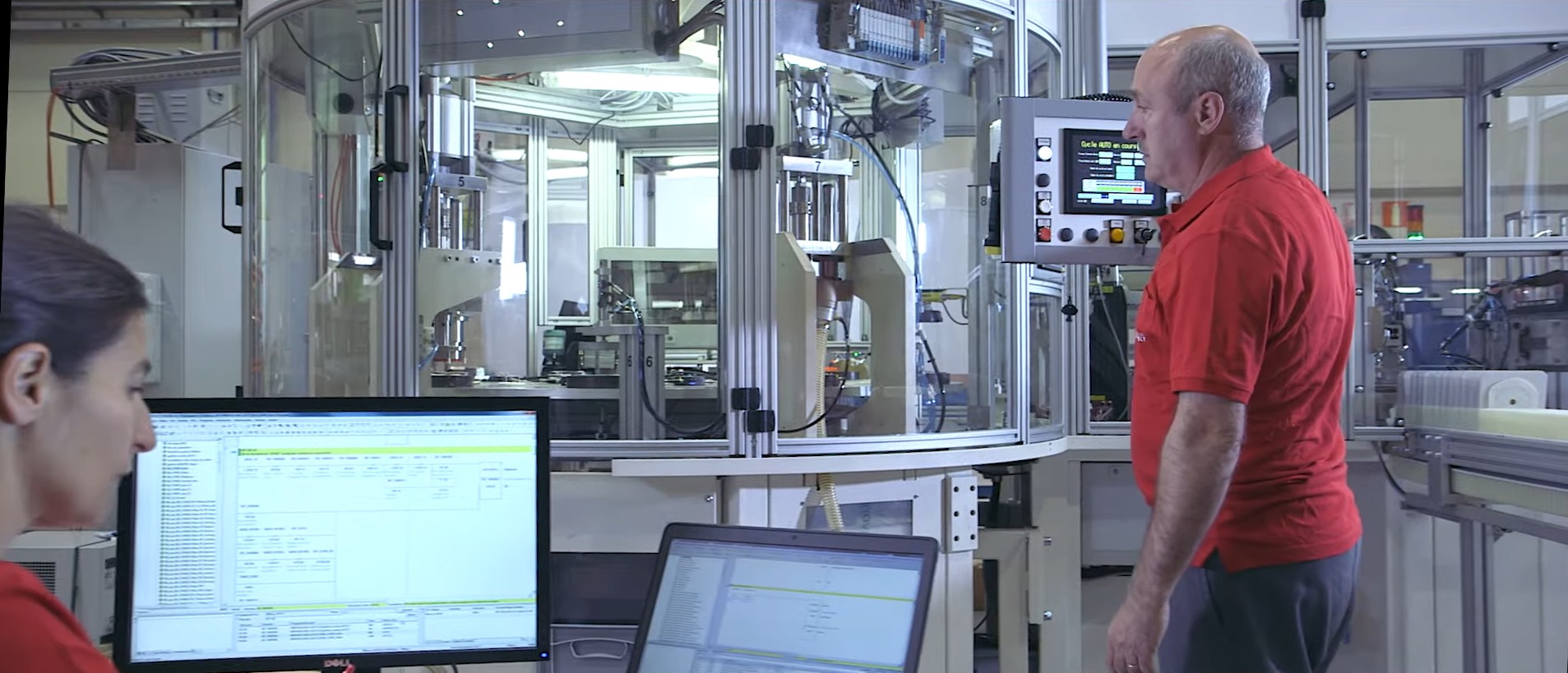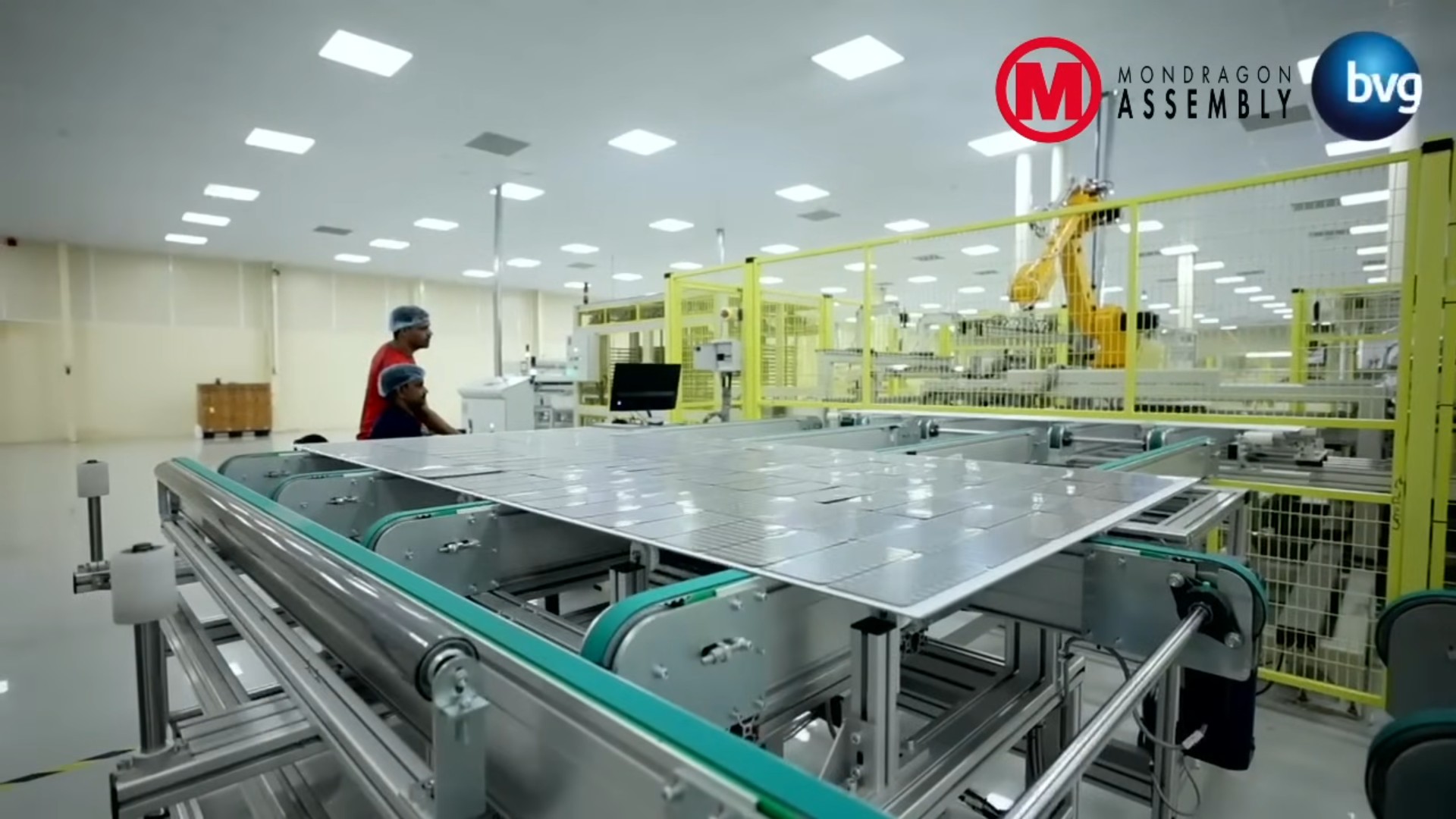A Coop Alternative to Capitalism, From The Heart of Europe
In the International Year of Cooperatives 2025, Kanal takes a look at the inspiring success story of Mondragon Corporation- a cooperative enterprise from Spain’s Basque region. As an alternative to the corporate model where workers have no stake over what, how and where to produce and what to do with the profits, Mondragon reflects the power of collective action and solidarity.

Author: Abhivad
Published: October 23, 2025
One of the most successful cooperative enterprises in the world- the Mondragon Corporation is headquartered in the small town of Mondragon lying in the heart of Basque Country of Spain. Founded in 1956 by a small group of five workers who believed in the power of collective action, the corporation now employs over 70,000 people and generates annual revenues of over 10.61billion euros(around 108169 crore Indian rupees). Let us take a detailed look at the inspirational story of this small-town coop enterprise.
Advertisement

Image: A graphic representation showing Mondragon Corporation’s presence worldwide. Credits: screen captured from Mondragon’s Corporate Video, Youtube.
Success Built on Cooperative Ideals
Advertisement
The Mondragon Corporation(MC) is not just a business, but a social movement built around the essential ideals of the cooperative movement i.e. the idea of democratic participation and shared ownership. All employees are also co-owners, meaning that they have a direct stake in the success of the company and a say in how it is run. This unique approach to business has been a major factor in the corporation's success over the years. Unlike other private corporations where the interests of the rich-investors are prioritised, MC places a greater emphasis on the needs of its employees, with a focus on job security, fair wages, and opportunities for professional development.
But it hasn't always been smooth sailing for the Mondragon Corporation. In the 1970s, the corporation faced significant financial difficulties due to a combination of external factors, including the oil crisis and the collapse of the Spanish economy. However, the workers banded together to make necessary decisions to keep the company afloat. This spirit of cooperation and solidarity has remained a defining feature of the Mondragon Corporation to this day.

Image: Inside one of the manufacturing units of industrial components. Credits: screen captured from Mondragon’s Corporate Video, Youtube.
Workers Hire Managers?
The corporation's structure is built around a network of smaller cooperatives, each with its own management team and a high degree of autonomy. This allows each cooperative to respond to the specific needs and challenges of its local community, while still benefiting from the resources and expertise of the larger Mondragon network.
For the people of Mondragon and beyond, the corporation serves as a beacon of hope and inspiration, demonstrating that an alternative, more democratic form of business is not only possible, but can also be hugely successful. As the world grapples with ongoing economic and social challenges, the Mondragon Model has often been looked up to, for lessons about the power of collective action and the potential of cooperative enterprise. Economists and Political Commentators from various parts of the world have pointed to the Mondragon Corporation as an equitable business model.
American Economist Richard D. Wolff, in his article for The Guardian titled ‘Yes, there is an alternative to capitalism: Mondragon shows the way’, prescribes the Mondragon Model as a ‘‘stunningly successful alternative to the capitalist organisation of production’’. He dwells deep into the details of the organisational principles followed by the corporation: “Mondragon Corporation is composed of many co-operative enterprises grouped into four areas: industry, finance, retail and knowledge. In each enterprise, the co-op members (averaging 80-85% of all workers per enterprise) collectively own and direct the enterprise. Through an annual general assembly the workers choose and employ a managing director and retain the power to make all the basic decisions of the enterprise (what, how and where to produce and what to do with the profits)”, writes Prof. Wolff.
“MC’s worker-members collectively choose, appoint and remove the directors, whereas in capitalist enterprises the reverse occurs. One of the cooperatively and democratically adopted rules governing the MC limits top-paid workers/members to earning 6.5 times the lowest-paid workers. Nothing more dramatically demonstrates the differences distinguishing this from the capitalist alternative organisation of enterprises. (In US corporations, CEOs can expect to be paid 400 times an average worker's salary – a rate that has increased 20-fold since 1965.)”- he adds.

Image: Inside a solar panel manufacturing unit of Mondragon. Credits: screen captured from Mondragon’s Corporate Video, Youtube.
American philosopher and social critic Noam Chomsky has also acknowledged Mondragon as “pieces of a more free and democratic society”. In a video on Mondragon Cooperation, he says: “For example, one of the most successful industrial commercial installations in Spain- quite big in fact- Mondragon. It's a big collection of industrial works, schools, social systems, health systems and so on - very substantial and very successful. It's one of the few parts of the Spanish economy that's competitive internationally, even after joining the European Union. It’s worker owned(partially socialist-anarchic), but manager-controlled. Workers pick the managers. And the workers, theoretically at least, control the managers. How much they control- you can debate, but there's no outside investors telling them what to do. They have their own development banks, they have their own social services and so on, and it's been dramatically successful. Well, that's pieces of a more free and democratic society.”
In recent years, the Mondragon Corporation has expanded beyond Spain, with a growing presence in countries such as Brazil, China and India. Despite this global reach, the corporation remains deeply rooted in its Basque origins and the principles of cooperation and solidarity that have guided it for over 60 years.
Advertisement
No comments yet.
